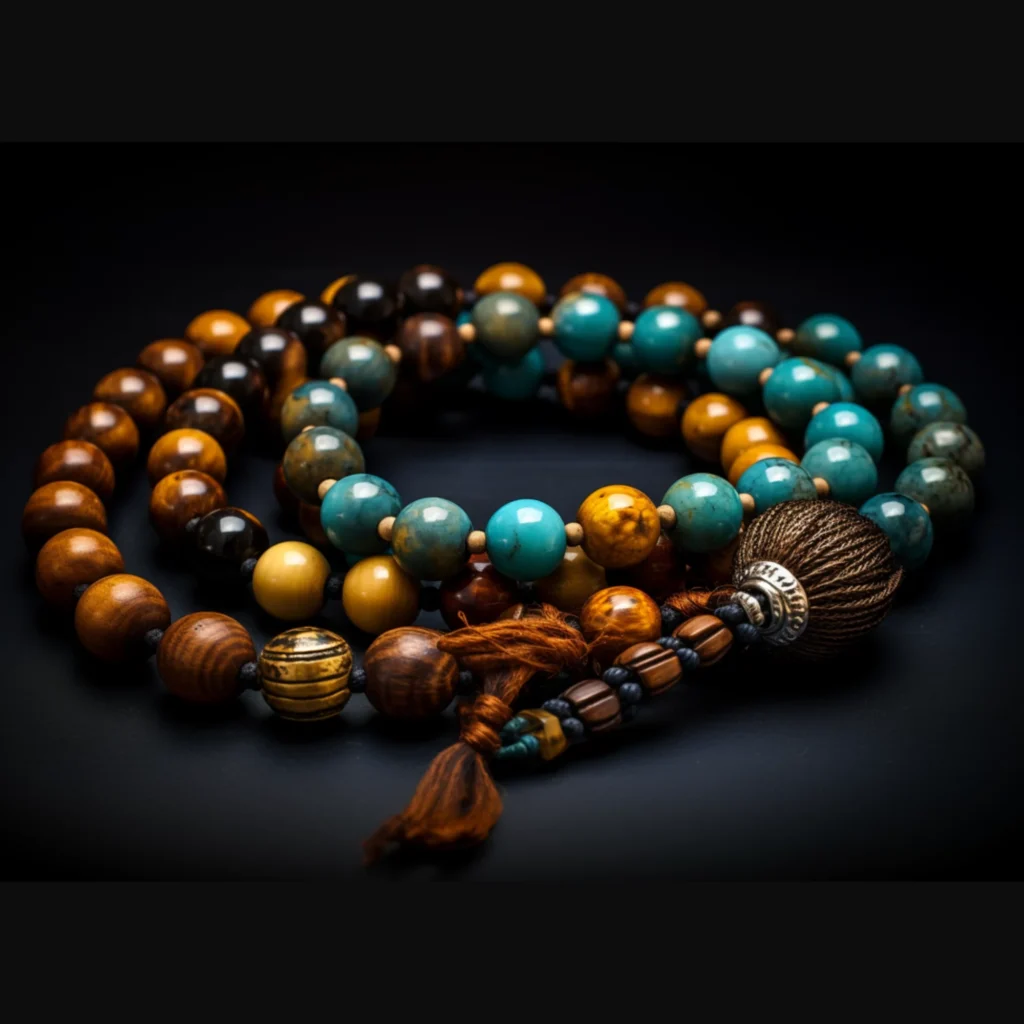What Are Prayer Beads?
Prayer beads, also known as rosaries, malas, or tasbih, are used in various religious and spiritual traditions around the world as aids for counting prayers, recitations, or chants.
Prayer Beads Across Religions
“The Rosary is a prayer which always accompanies me. It’s also the prayer of ordinary people and the saints…and a prayer from my heart.”
–Pope Francis
“People count with self-satisfaction the number of times they have recited the name of God on their prayer beads, but they keep no beads for reckoning the number of idle words they speak.”
–Al-Ghazali, Medieval Muslim theologian and scholar
Prayer Beads in Buddhism
In Buddhism, malas are commonly used to count recitations of mantras or prayers during meditation or as part of devotional practices. A mala typically consists of 108 beads, representing the 108 defilements or mental afflictions that Buddhists seek to overcome.
Prayer Beads in Islam
In Islam, tasbih are prayer beads used by Muslims to recite the 99 names of Allah, the Islamic creed (the Shahada), or other prayers and supplications, and a spacer or tassel that marks the beginning and end of the tasbih.
Prayer Beads in Christianity
In Christianity, rosary beads are used by Catholics and some other Christian denominations as a tool for counting prayers, such as the “Hail Mary” or the “Our Father,” which are recited as part of the Rosary, a popular Catholic devotion. A typical rosary consists of five sets of ten beads (called decades) separated by larger beads, with a crucifix or a medal attached at the end.
Prayer Beads in Hinduism:
In Hinduism, malas are used for counting repetitions of prayers, mantras, or chants during meditation or as part of devotional practices. Hindu malas can vary in size and number of beads, but typically consist of 108 beads, representing the 108 sacred texts of Hinduism or the 108 Hindu deities, and a larger bead or a tassel that marks the beginning and end of the mala.

Prayer Beads in Sikhism:
In Sikhism, a monotheistic religion originating in India, the use of prayer beads is not as common as in some other religions, but some Sikhs may use a small string of prayer beads called “mala” to recite prayers or affirmations related to Sikh teachings, such as the “Ik Onkar” mantra or the “Mool Mantar,” which is the opening verse of the Sikh scripture, Guru Granth Sahib.
Popular Reads
Fire as a symbol | Religious wear | False narrative | Charioteer | Cosmic tree | Sacred words | Sacred music | Allegory of the Cave | The great flood | Creation story | Hippocratic oath | Fasting and religion | Spiritual transcendence | Religious texts | Divine justice | Higher power | Divine laughter | Spirituality and money | Oneness with God | Religious conversion | Religious ritual | Sacred spaces | Promised land
For more reflections on personal growth, wisdom and happiness, browse through our website


